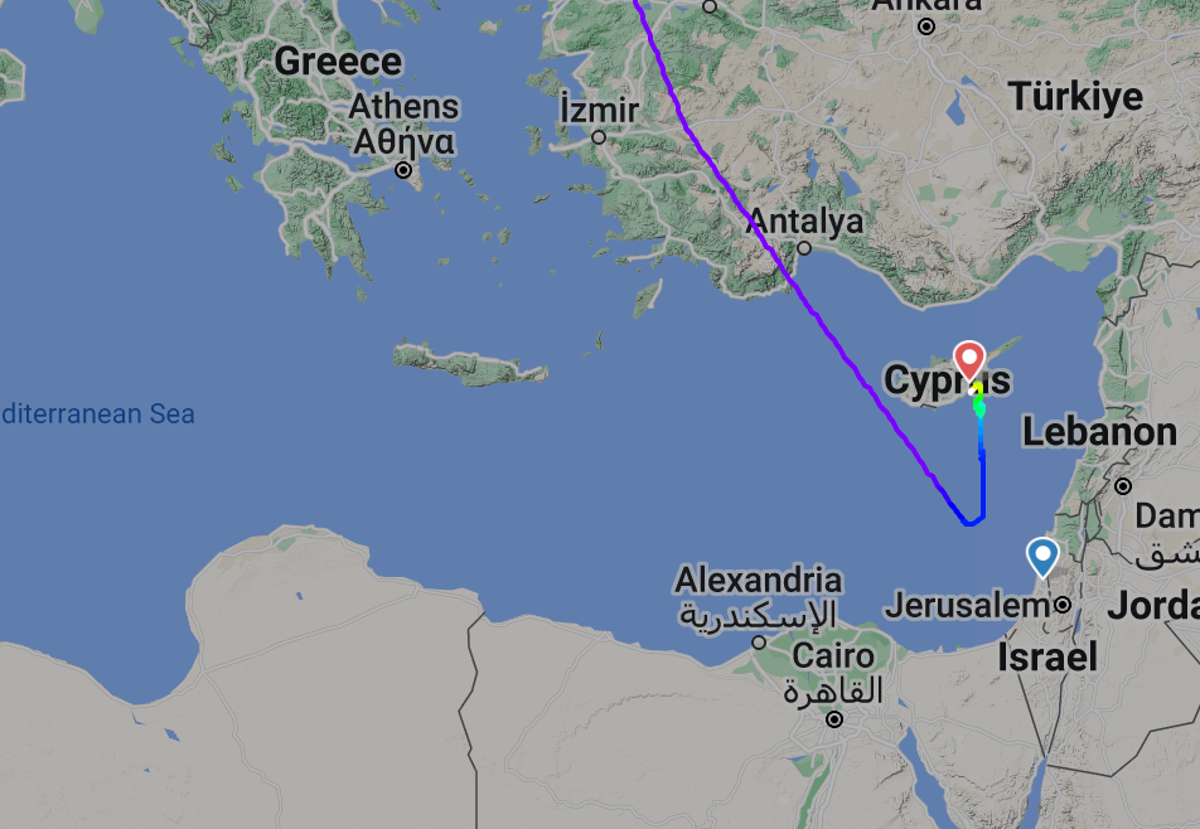
“The risk of a passenger aircraft becoming a casualty of this war is high” – that is the stark warning from an aviation organisation about the conflict in Israel.
The alert comes from OpsGroup, an international membership organisation for pilots and other aviation staff.
British Airways and Virgin Atlantic, which continue to fly from London Heathrow to Tel Aviv, insist they would never operate a flight unless it was safe to do so.
In a bulletin, OpsGroup says: “Israel is now an active war zone. As such, all lessons learned regarding civil operations in conflict zones over the last nine years since MH17 need to be applied.”
Malaysia Airlines flight MH17, a passenger flight from Amsterdam to Kuala Lumpur, was shot down over occupied eastern Ukraine in 2014 by a Buk anti-aircraft missile that belonged to the Russian army.
All 298 passengers and crew died in the attack.
The bulletin adds: “The ultimate sentiment from MH17 still echoes: ‘What were they doing flying over a war zone?’ We truly hope the same question doesn’t need to be asked in Tel Aviv airspace this week.
“For many operators, risk assessment is extremely challenging to get right. Commercial and political pressures go against the normal ‘err on the side of caution’ principle in flight operations.
“For decades, we have seen sporadic conflict in Israel - even in quieter periods, rocket attacks on Israel are the norm. Despite this, operations to Tel Aviv have continued routinely, and operators have become used to raised threat levels in Israel.
“The secondary risk is a multitude of factors from operating in a conflict zone: misidentification, debris from air defences, GPS spoofing, false EGPWS [enhanced ground proximity warning systems] alerts (now common in Israeli airspace), and reduced route and diversion options in the event of an aircraft emergency.”
OpsGroup says it caters for “the people at the sharp end of aviation – the pilots, dispatchers, controllers, managers”.
It has issued recommendations – which have no official status – for full avoidance of Israeli airspace and says airlines should “carefully consider route choices” into Jordanian airports, notably Amman.
A Virgin Atlantic spokesperson said: “The safety and security of our customers and our people always comes first and our flying programme to Israel remains under constant review.”
Both BA and Virgin Atlantic have outstandingly good safety records.
The two airlines have adjusted their operations so that crews no longer need to “night stop” in Israel: their flights are timed to depart from London Heathrow shortly after 8am, arrive in Tel Aviv in mid-afternoon and return after less than two hours on the ground.
The three big US airlines – American, Delta and United – have suspended flights to Israel. One reason is that the length of trips means crew must rest on arrival in Tel Aviv.
El Al, Israel’s national carrier, is operating a full schedule. It says: “El Al Airlines operates in accordance with the instructions of the Israeli security forces.
“We are making great efforts to assist Israeli passengers return home from abroad as soon as possible. We have added flights from several destinations in the world and will continue to add flights as much as we can.”
In May 2021, Tel Aviv airport closed on several occasions as air defence systems were activated around the country to repel rocket attacks from Gaza.
Budget airlines including easyJet, Ryanair and Wizz Air have suspended operations to and from Tel Aviv.







